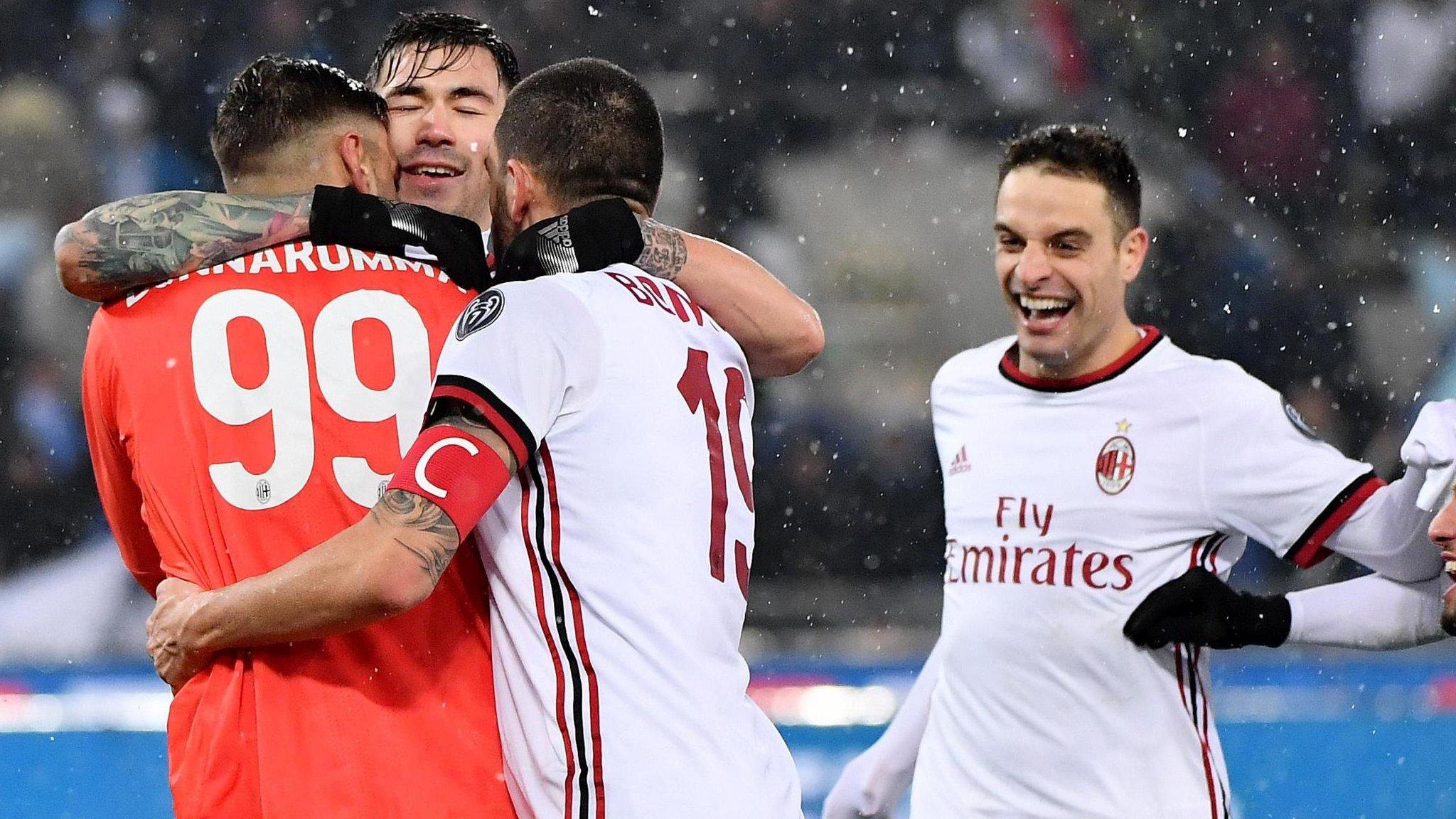Massimiliano Allegri: The 'bride abandoner' and maverick Juventus boss plotting Tottenham's downfall
- Published
- comments
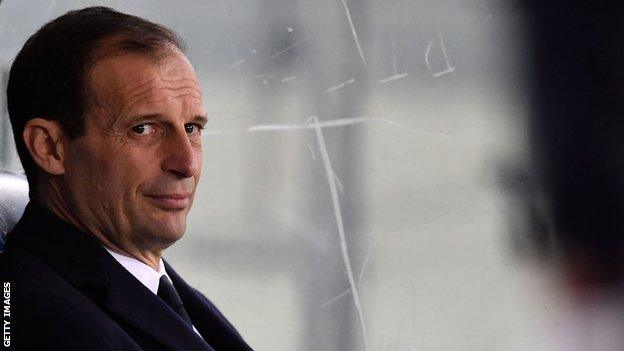
Massimiliano Allegri makes mistakes but he is also a thoughtful, bold and successful coach
Tottenham v Juventus - Champions League round of 16 |
|---|
Date: 7 March Kick-off: 19:45 GMT Venue: Wembley |
Coverage: Commentary on Radio 5 live, text commentary on the BBC website |
Juventus boss Massimiliano Allegri is used to criticism.
Speaking in an interview in GQ magazine in 2016 he wryly observed: "'Allegri is a jerk,' they said. 'He plays at the casino, he bets on horses, he leaves a bride at the altar, he's just crazy in the head.'"
But whatever tribulations there may have been in his private life, Allegri's professional life has seen plenty of successes, culminating in his masterpiece, Juventus.
Tottenham - led by a talented tactician of their own - now stand in the Italian coach's way as he tries to take his club on yet another journey through the Champions Leagues knockout stages. The sides meet at Wembley on Wednesday with their last-16 tie locked at 2-2 after the first leg in Turin.
Now 50, Allegri was a creative midfielder who often scored goals in Italy's Serie A, albeit for smaller clubs such as Pescara and Cagliari.
Nicknamed 'anchovy' for his thin frame, Allegri was not a sensational player, unlike other big-name Italian coaches such as Roberto Mancini, Carlo Ancelotti and Antonio Conte, but he certainly always thought he knew better than everyone else.
"Even when I was on the football pitch as a teenager, I wanted to be the teacher," Allegri wrote in a piece on the Players' Tribune website, external last year.
"I had a few passionate discussions with my own coaches, but it wasn't for more playing time or anything like that. It was because, even then, I wanted to run the team my own way."

Playing career:
374 league games for 12 Italian teams between 1984 and 2003
Titles won: Italian third division in 1987, Italian fourth division in 2002
Was banned for matchfixing, external in 2001
Managerial career:
Has led seven clubs, beginning with Aglianese
Has won Serie A four times
Won Italian Cup three times
Two-time Champions League runner-up

His confidence is his most startling quality.
He was called weak by many critics who watched as players like Zlatan Ibrahimovic seemed to impose their authority over his dressing room, something they would never do under the tutelage of a classic Italian authoritarian. Allegri sees it differently.
He observes, he adapts, and he has no problems in looking at things from a different point of view.
"I change my mind because I do not consider it a weakness, but a way of growing up," explains Allegri.
His former partners might disagree.
In 1992, Corriere della Sera ran a piece titled, 'The escape of a footballer from the altar in the final hour'. The article described how the groom, a footballer, chose to cancel his wedding just before it was due to take place. The player who "loved surprises" and "could turn a game upside down in the last minute" had seemingly changed his mind.
That player was Allegri and he has never quite shaken off the reputation for being the "bride abandoner".
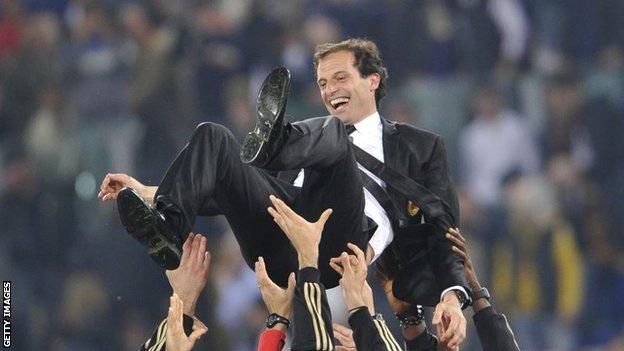
It was under Allegri that Milan won Serie A in 2011 - their first Scudetto since 2004
All his subsequent relationships have been documented in detail by Italy's tabloids. However, if constant change has afflicted his private life, it has helped his professional life to blossom.
It was he who helped little Sassuolo reach Serie B for the first time in 2008, it was he who led Cagliari to a ninth-place finish in Serie A a year later, something they had not managed in close to 15 years - something he did despite losing his first five games - and it was Allegri who won AC Milan the title at the first time of asking in 2011, their first Scudetto since 2004.
Yet nothing he has achieved in the past comes close to what he has managed at Juventus.
Greeted on his arrival at the club by boos, tomatoes and whistles, Allegri was, in the eyes of the fans, no fit replacement for their former captain, legend and tactical maestro Antonio Conte when he left to manage the Italy national team in 2014.
Conte had revived the Old Lady with his charisma, hard work and understanding of the Juve way and taken them to three successive titles in his three seasons in charge - their first since they were demoted to Serie B in the wake of the Calciopoli match-fixing scandal.
How could Allegri, sacked by Milan, ever hope to match what his predecessor had achieved?
Allegri has not just matched it. He has exceeded it, adding three more domestic titles and taking his side to two Champions League finals.
Conte had dismissed Juve's hopes of making an impact in Europe, remarking: "You cannot go to eat at a 100 euro restaurant with just 10 euros in your pocket, can you?" But Allegri led that 10 euro squad to the Champions League final in 2015, impressing as he and his squad thrashed the likes of Real Madrid along the way, a club with more than a few million euros in their pocket.
Under Allegri, Juventus grew in strength - physically, mentally and, most importantly, tactically.
Evolution is the watchword for Allegri - his Juve side is constantly being remoulded, repackaged and rebuilt to devastating effect.
The mark of a great coach is often held to be obsessive attention to detail - the opponent studied for days, the players well drilled on the tactical plan and the plays almost memorised as the players move as one, like actors on a stage.
Allegri cares little for that. He is not interested in a style of play, in the philosophised construction of beautiful football, but rather in developing intelligent footballers who think for themselves.
Tactical schemes are indeed taught, and the aim of the game is to have a side that can morph into various different shapes in order to achieve the best possible outcome. But Juventus are rarely beautiful. They are a team who work in the moment, knowing how to hinder the opponent from playing as well as exploiting their own opportunities to score.
When asked why he continued his journey with the Old Lady after losing another Champions League final in 2017, Allegri wrote: "I do this because I love teaching. It is truly the joy of my life. I like making players better and smarter."
Every season Juventus have lost a champion yet gained in unity.
The coach watched as Arturo Vidal was sold, Andrea Pirlo departed, Paul Pogba left, Alvaro Morata rejoined Real Madrid and Leonardo Bonucci jumped ship - and yet Juve still win. Three consecutive titles, three Coppa Italia trophies and two Champions League finals.
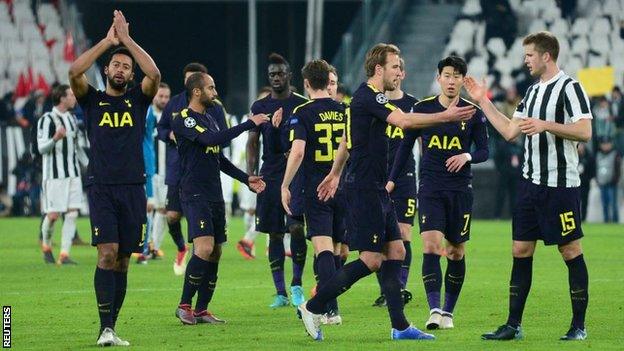
Mousa Dembele (left) was excellent for Spurs against Juve in the first leg of their Champions League tie - aided perhaps by the home side's formation
Impressive for a coach who has previously confessed to deciding his line-up when he wakes up in the morning and to preparing for upcoming matches by only watching a few minutes' worth of videos.
"I always say that there are manufactured coaches and natural coaches," he said. "I am one of the natural ones. I do not have to sit there and watch videos for hours. I look at what I have to watch and, in a quarter of an hour, I understand what I can understand."
More than just winning trophies, Allegri developed Morata into a phenomenal footballer suited to the big occasions, turned Carlos Tevez into a real team player, Mario Mandzukic into an exemplary professional and, of course, got the best out of Pogba.
While Conte is often credited for nurturing Pogba's talent, the truth is it was under Allegri that the youngster truly thrived. Thrilling in his final year before a then world-record return to Manchester United, the Frenchman revelled in his new creative role, where he, alongside Miralem Pjanic, delivered the highest number of assists in the league.
However, as Tottenham discovered in Turin, and as Barcelona and Real Madrid had before them, Allegri makes mistakes.
He played a 4-2-3-1 formation in the first leg against the Premier League side - and playing with only two midfielders against a side with Mousa Dembele within its ranks made little sense.
Yet had Gonzalo Higuain taken his chances and Gianluigi Buffon not produced a rare error, Juve would have been 3-1 up in that tie and Allegri would have been applauded for a bold selection.
As for the two Champions League final defeats in 2015 and 2017, the Juve coach may have bottled it or the Bianconeri may have just done what they have historically done all too often - lose a final.
Allegri is still learning, still developing, but two finals in three years should be celebrated and not transformed into a stick with which to beat the man who has surpassed expectations.
Beppe Marotta, Juve's sporting director, often repeats a quote of Nelson Mandela's: "I don't lose, I either win or learn." That is the message Juve choose to live by.
- Published7 June 2017
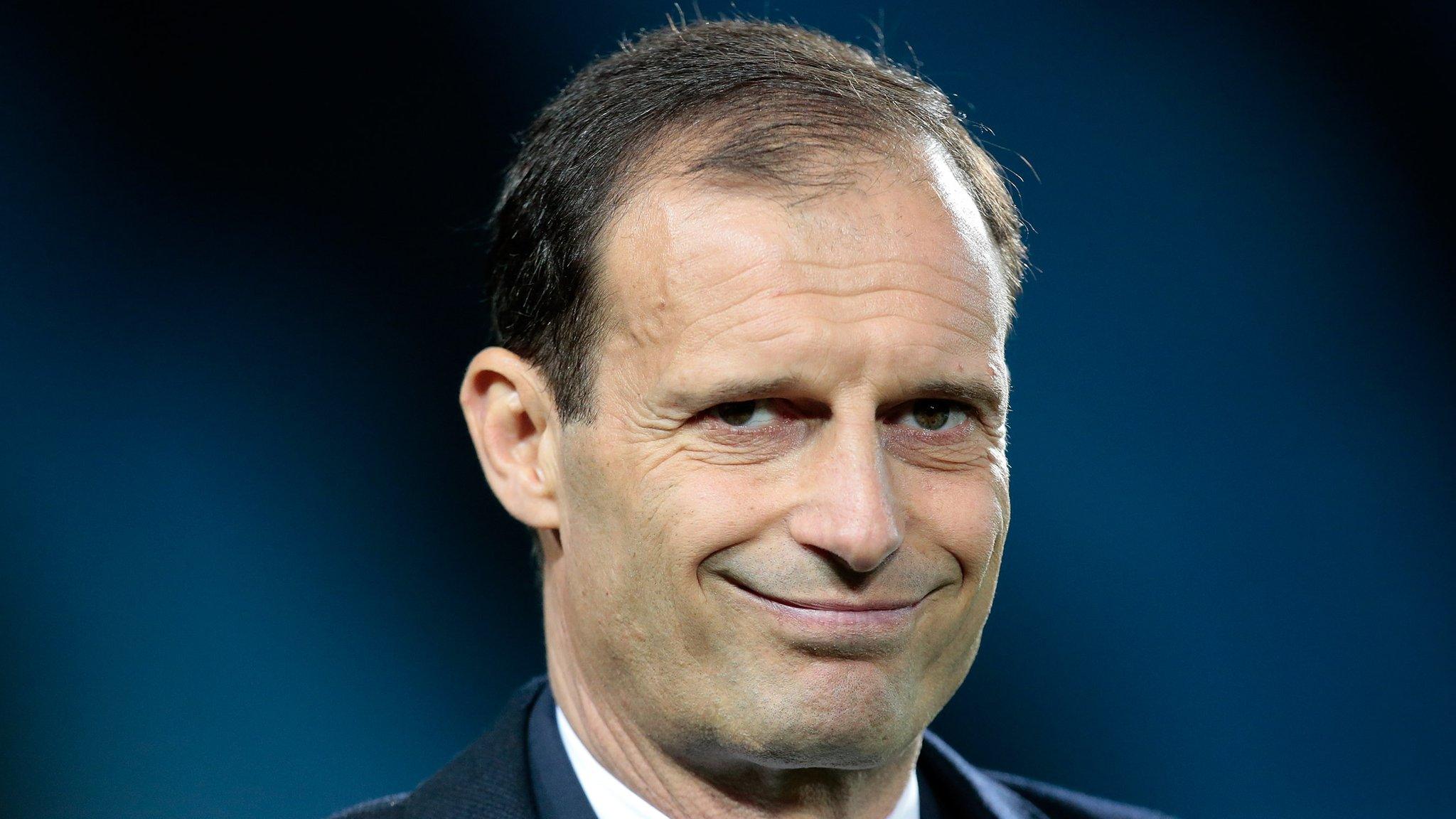
- Published28 February 2018
